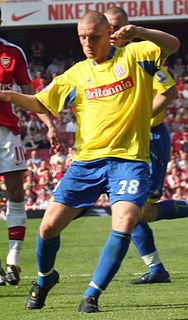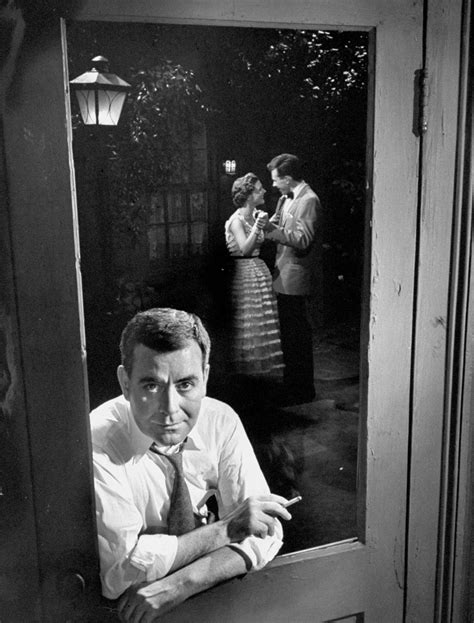A Quote by Nick Hornby
The truth about autobiographical songs, he realized, was that you had to make the present become the past, somehow: you had to take a feeling or a friend or a woman and turn whatever it was into something that was over, so that you could be definitive about it. You had to put it in a glass case and look at it and think about it until it gave up its meaning.
Related Quotes
So I realized when I was successful in a piece, it was because I didn't abandon a notion early on what it ought to be, and I let it take me along. So I've had songs that started out as being about the environment and ended up being love songs and love songs that ended up being about the environment. I've had things that I thought would be a poem and realized that it was just too big for that. I've got to do something larger and it became a play. I wrote one poem that started a whole play.
It was like that class at school where the teacher talks about Realization, about how you could realize something big in a commonplace thing. The example he gave--and the liar said it really happened--was that once while drinking orange juice, he'd realized he would be dead someday. He wondered if we, his students, had had similar 'realizations.' Is he kidding? I thought. Once I cashed a paycheck and I realized it wasn't enough. Once I had food poisoning, and realized I was trapped inside my body.
My father was a writer, so I grew up writing and reading and I was really encouraged by him. I had some sort of gift and when it came time to try to find a publisher I had a little bit of an "in" because I had his agent I could turn to, to at least read my initial offerings when I was about 20. But the only problem was that they were just awful, they were just terrible stories and my agent, who ended up being my agent, was very, very sweet about it, but it took about four years until I actually had something worth trying to sell.
Last night I thought about all the kerosene I've used in the past ten years. And I thought about books. And for the first time I realized that a man was behind each one of the books. A man had to think them up. A man had to take a long time to put them down on paper. And I'd never even thought that thought before...It took some man a lifetime maybe to put some of his thoughts down, looking around at the world and life, and then I come along in two minutes and boom! it's all over.
My mother and I definitely got to a point where we had to have a real conversation and talk woman to woman, or daughter to mother, friend to friend - just off the record, clear the air and communicate. I didn't want to drive my mama crazy, but at the same time, I had to do, I had to learn, I had to grow and she understood that. She knows me better than anyone else on the planet so I tried to think about that.
Was it the act of giving birth that made you a mother? Did you lose that label when you relinquished your child? If people were measured by their deeds, on the one hand, I had a woman who had chosen to give me up; on the other, I had a woman who'd sat up with me at night when I was sick as a child, who'd cried with me over boyfriends, who'd clapped fiercely at my law school graduation. Which acts made you more of a mother? Both, I realized. Being a parent wasn't just about bearing a child. It was about bearing witness to its life.
But she still had that something which fires the imagination, could still stop one's breath for a moment by a look or gesture that somehow revealed the meaning in common things. She had only to stand in the orchard, to put her hand on a little crab tree and look up at the apples, to make you feel the goodness of planting and tending and harvesting at last. All the strong things of her heart came out in her body, that had been so tireless in serving generous emotions. It was no wonder that her sons stood tall and straight. She was a rich mine of life, like the founders of early races.
A woman journalist in England asked me why Americans usually wrote about their childhood and a past that happened only in imagination, why they never wrote about the present. This bothered me until I realized why - that a novelist wants to know how it comes out, that he can't be omnipotent writing a book about the present, particularly this one.
In my terms, I settled for the realities of life, and submitted to its necessities: if this, then that, and so the years passed. In Adrian's terms, I gave up on life, gave up on examining it, took it as it came. And so, for the first time, I began to feel a more general remorse - a feeling somewhere between self-pity and self-hatred - about my whole life. All of it. I had lost the friends of my youth. I had lost the love of my wife. I had abandoned the ambitions I had entertained. I had wanted life not to bother me too much, and had succeeded - and how pitiful that was.





































